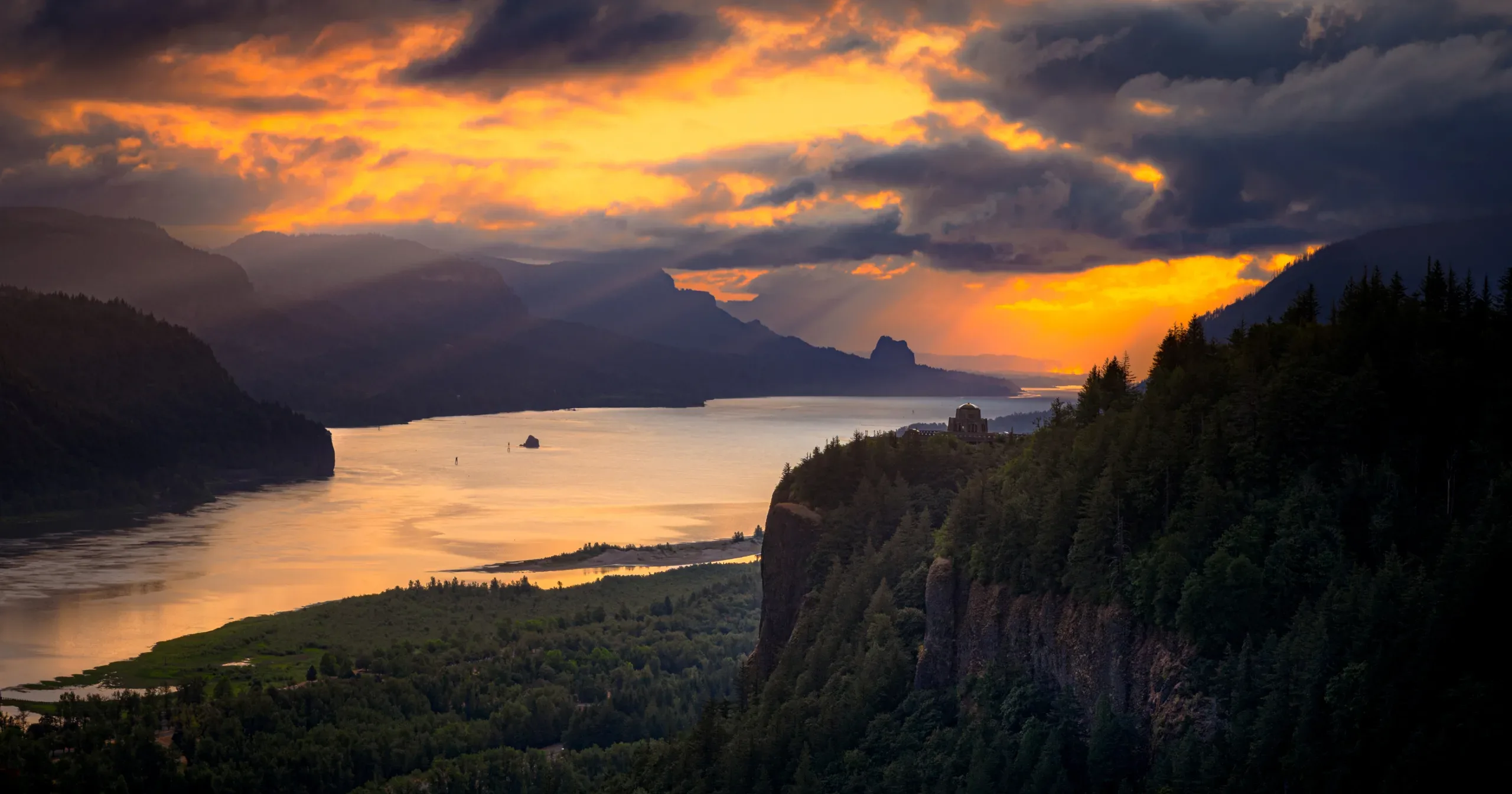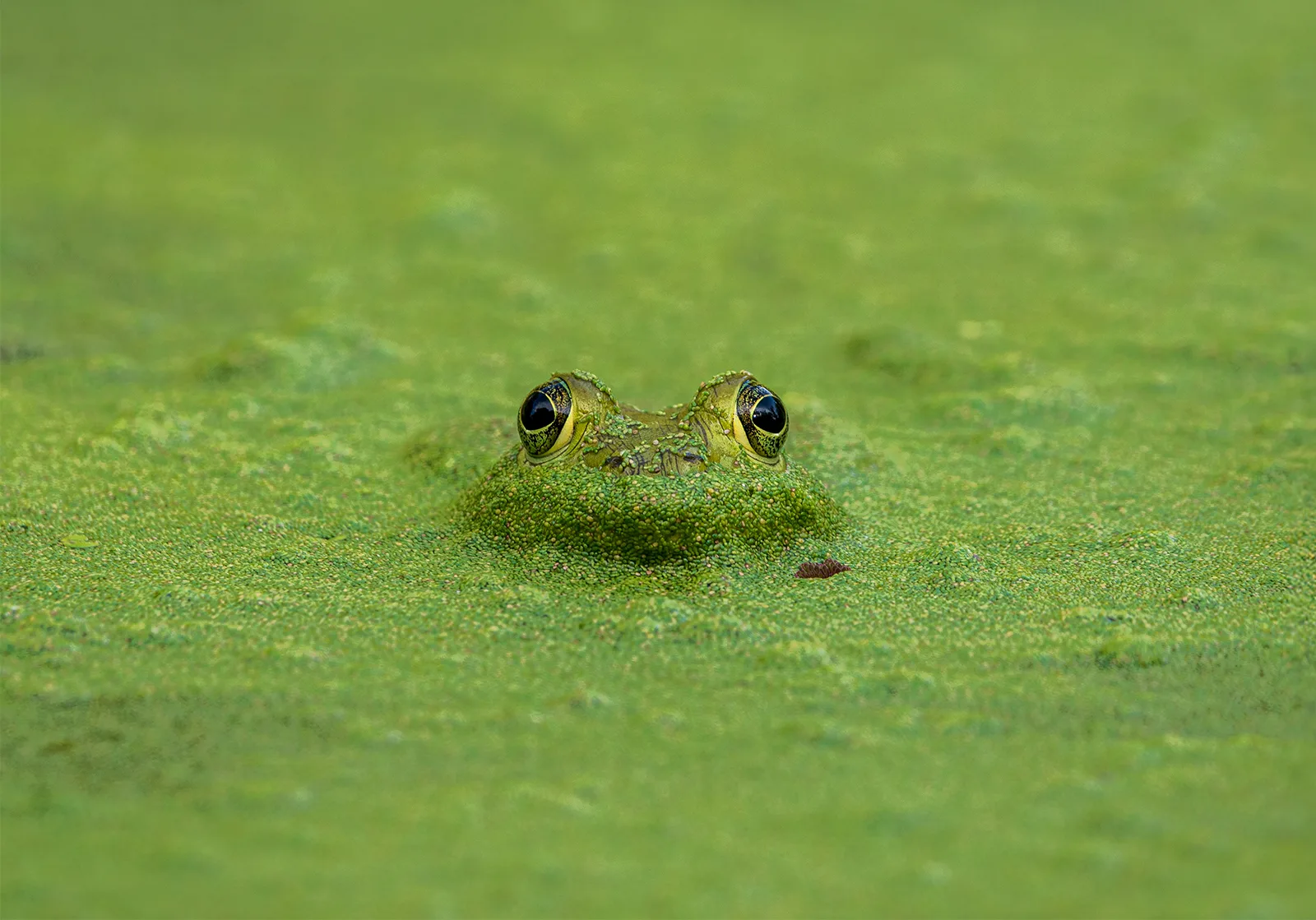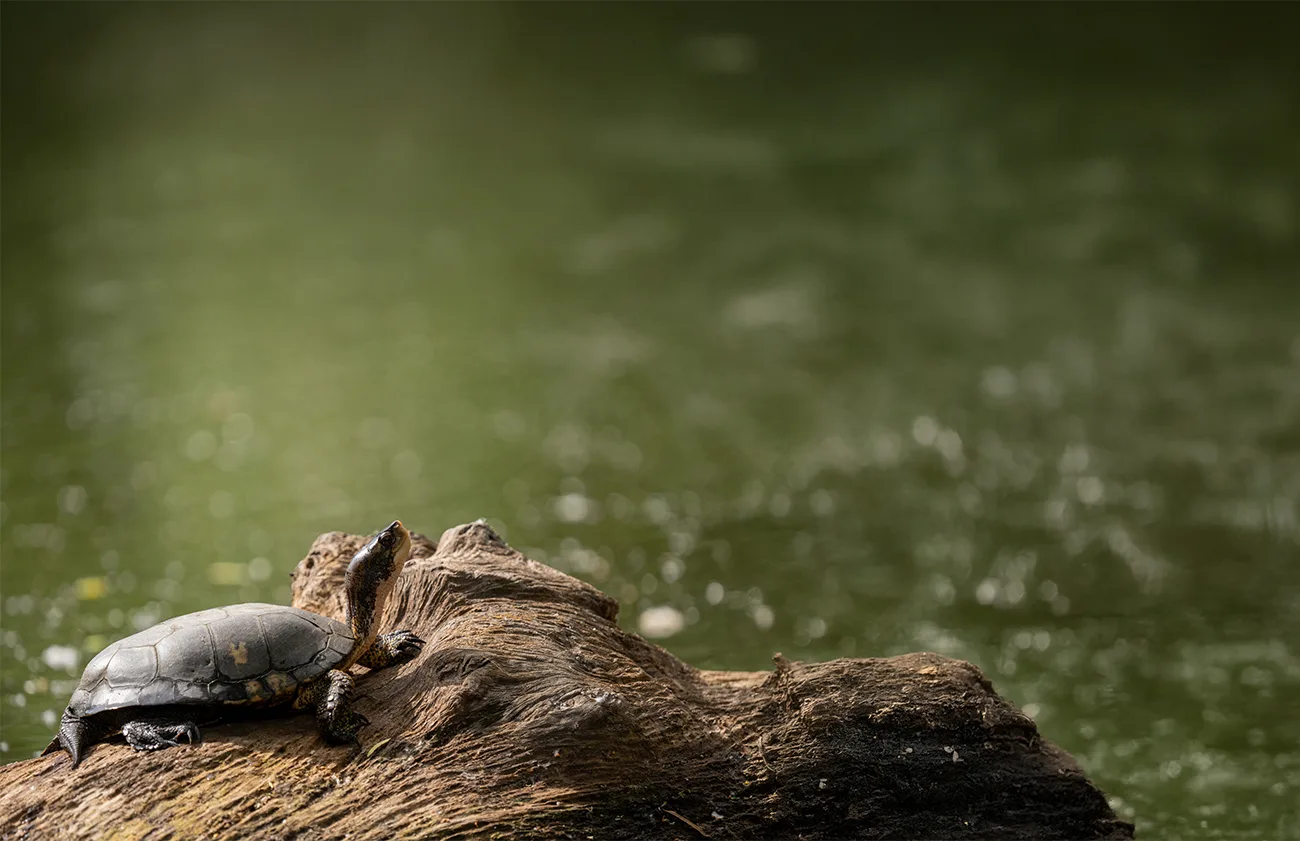During the Oregon and Washington legislative sessions, Friends staff spent time in Salem and Olympia advocating for policies that support Gorge conservation. While we didn’t reach the desired outcome on every issue, we still found the legislative sessions in Oregon and Washington to have been largely successful.
Oregon Legislature Top Priorities
SB 179 – Recreational Immunity (Passed): This law shields local governments and private landowners from liability when they open land to the public for free recreation. Entering the legislative session, there was a temporary version of this law with a sunset date in January 2026. Friends worked closely with the Coalition of Oregon Land Trusts and the Oregon Trails Coalition before and during the session to achieve permanent protections.
Recreational immunity is critical to our work. In Oregon, our Mosier Plateau preserve has public trails, and future trail connections—such as the Mosier-to-The Dalles segment of our Gorge Towns to Trails project—will cross our Mt. Ulka preserve and private lands via easements. Protecting landowners from liability is essential to making these connections.
SB 5508 – Gorge Commission Budget (Passed): Following Washington’s 25% budget cut for the bi-state Columbia River Gorge Commission, Oregon’s Joint Committee on Ways & Means was forced to match the funding reduction. The bill passed both chambers without major obstacles. During committee hearings, several Oregon legislators expressed disappointment in Washington’s cuts and affirmed Oregon’s continued commitment to the Commission’s mission.
SB 80 – Gorge Air Quality & CAFO Moratorium (Failed): As a member of the Stand Up to Factory Farms (SUFF) coalition, Friends advocated for SB 80, which would have placed a moratorium on new or expanding confined animal feeding operations (CAFOs) in Oregon’s three Groundwater Management Areas, including the Lower Umatilla Basin near Boardman, Oregon. CAFOs in this region are a major source of nitrate contamination and air emissions that can impact the Gorge. Friends participated in a lobby day, met with legislators and the Governor’s office, and submitted testimony. Unfortunately, the bill did not advance out of committee.
Additional Legislative Engagement
HB 3546 – “POWER” Act (Passed): Friends supported this bill to hold major energy users—such as data centers and crypto mining operations—accountable for infrastructure costs, rather than shifting those costs to residential customers. With the growing footprint of energy-intensive industries along the Columbia River, this is a key issue for the Gorge.
HB 2347 – Tribal Housing Support (Passed): We backed this bill empowering the Department of Land Conservation and Development to assist federally recognized tribes in building housing on tribal lands, helping address urgent housing needs in tribal communities.
HB 2384 – Tank Railroad Car Fee Extension (Passed): Friends supported this bill to extend the tank rail car contingency planning and cleanup fee. Friends played a leading role in getting these fees established in prior years to hold rail companies accountable for the risks of oil train derailments in the Gorge.
Land Use Defense (Successfully Opposed): Friends opposed several bills that would have undermined Oregon’s land use planning system by encouraging urban sprawl. While not directly affecting the Scenic Area, weakening Oregon’s planning framework would increase political pressure on the Gorge Commission to allow similar sprawl in the Scenic Area Management Plan.
Following sustained advocacy from Friends and our supporters, the Washington Legislature ultimately reversed course on its proposed deep cuts to the Columbia River Gorge Commission. While the final budget included a 25% reduction in funding, this was a marked improvement over initial drafts, which had proposed slashing the budget by more than half.
Saving the Gorge Commission’s funding required swift and coordinated action. After learning of the proposed cuts, Friends launched an all-hands-on-deck advocacy campaign, mobilizing thousands of supporters, engaging local governments, and earning strong support from Oregon legislators who defended the integrity of the bi-state compact. Our legal and policy staff testified before the Washington Senate Ways & Means Committee and met directly with lawmakers to underscore the risk these cuts posed to the Gorge’s long-term protection. These efforts were instrumental in securing the final partial restoration.
Another major win came with the preservation of Climate Commitment Act (CCA) funding in the final budget. CCA dollars remain dedicated to their intended purpose—cutting greenhouse gas emissions and investing in climate solutions. The Gorge Commission will receive $138,000 from the CCA to support its climate change work, providing a much-needed infusion of resources for this urgent priority.
Looking Ahead
Friends will be back in Olympia and Salem in 2026, when both states hold short legislative sessions. We’ll also be ready to return to the Capitol if special sessions are called to address budget gaps. With continued advocacy and support from our members, we’ll keep fighting for strong, forward-looking policies that protect the Columbia River Gorge for generations to come.
Elevating the Gorge in Washington State Politics
As the Washington legislative session wrapped up, the near-defunding of the Columbia River Gorge Commission served as a clear wake-up call: Friends of the Columbia Gorge has more work to do in Olympia.
When an amendment proposing to eliminate funding for the Commission was introduced in the House Appropriations Committee, not a single legislator spoke up in defense or voted no during the voice vote.
This moment underscores the need to deepen awareness among Washington lawmakers—not just about the Gorge Commission, but about the Columbia River Gorge National Scenic Area itself.
Why is the National Scenic Area more well-known in Oregon than in Washington? Proximity plays a big role. The Portland metro area, Oregon’s largest population center, sits on the doorstep of the Gorge, making it a popular destination for day hikes and weekend escapes. In contrast, Washington’s major population centers in the Seattle-Tacoma region are over three hours away. Many residents in those areas turn instead to nearby outdoor treasures like Mt. Rainier, the Olympics, and Puget Sound for their day hikes and outdoor recreation.
During recent conversations with staff in Olympia, some legislators even confused the Columbia River Gorge with the Gorge Amphitheater in George, Washingtona reminder of how much education remains to be done.
How will we remedy this? Our Advocacy & Conservation team will continue to spend time in Olympia during legislative sessions and during Committee Assembly Days when the legislature is not in session. However, simply having a presence in Olympia won’t be enough to generate true support for this region from the legislators. This will take a dedicated outreach strategy to have meaningful conversations with legislators.
In the coming months, we plan to invite legislators and their staff out to the Columbia River Gorge for guided tours—giving them the chance to experience firsthand what makes this landscape so extraordinary and why it deserves strong, informed advocacy.




